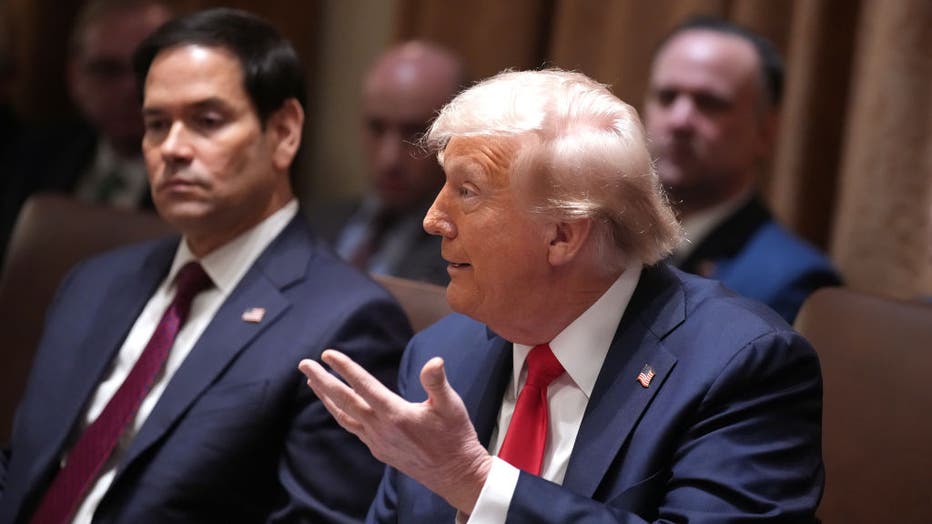US to revoke some Chinese student visas, expand social media vetting for Communist Party ties

Trump admin terminates Harvard's student visa program
The Trump administration on Thursday revoked Harvard University's ability to enroll international students. LiveNOW's Christina Evans breaks it down with Karin Fischer, senior writer for the Chronicle for Higher Education.
WASHINGTON - The US State Department is moving to revoke some visas held by Chinese students and increase screening of international applicants’ social media, part of a broader policy shift that could impact America’s reputation as a global leader in education and research.
Secretary of State Marco Rubio made the announcement Tuesday on X, saying the effort will target individuals "with connections to the Chinese Communist Party or studying in critical fields." The move comes as the Trump administration intensifies its scrutiny of international students more broadly.
Why Chinese students are being targeted
The backstory:
Rubio’s post and a diplomatic cable sent to US embassies signal that visa enforcement will focus on students studying subjects tied to national security or economic competition, such as advanced technologies. While specifics haven’t been publicly released, Rubio framed the new policy as a national security measure.
The cable also instructed embassies to halt new visa interviews for international students until updated vetting guidelines are issued. Appointments already on the calendar may proceed under current review procedures.
How social media vetting will work
Dig deeper:
Since 2019, the State Department has required visa applicants to submit social media handles as part of the application. The new policy will deepen scrutiny of those accounts, although officials have yet to detail what that will entail.
Analysts say this expanded monitoring could deter prospective students. "The details remain vague, but this policy risks upending the long-standing place of the US as a beacon for intellectual and cultural exchange," said Jonathan Friedman of PEN America.
Growing concern among international students
What they're saying:
With more than 1.1 million international students enrolled in the US last year—many of whom pay full tuition—university leaders are sounding the alarm about potential fallout.
"This is a very dynamic situation, and we are closely monitoring the developments in real time," said Northeastern University spokesperson Renata Nyul.

U.S. President Donald Trump delivers remarks during a Cabinet Meeting at the White House on February 26, 2025 in Washington, DC. (Photo by Andrew Harnik/Getty Images)
Some students have already changed their travel plans. A student at the University of Wisconsin-Madison canceled a summer trip home to Vietnam over fears his legal status could change. "There’s just this constant unease. It’s quite stressful, really," he said.
Tension with Harvard and broader crackdowns
The other side:
The new visa crackdown comes just days after the Trump administration attempted to block Harvard University from enrolling new international students—a decision temporarily paused by a federal judge. Trump has said Harvard, which has a large international student population, should reduce that number to "about 15%."
"They’re taking people from areas of the world that are very radicalized," Trump said Wednesday. "We don’t want them making trouble in our country."
His administration has also sought to deport students involved in campus protests over the Israel-Hamas war and revoked student visas before backtracking and expanding enforcement criteria.
What's next:
The pause applies to three major visa categories:
- F-1 visas for full-time academic students
- J-1 visas for exchange program participants
- M-1 visas for vocational or non-academic studies
The current guidance does not block already-approved visas, but officials say new rules will be issued soon.
Universities like Northeastern have begun developing contingency plans, while advocacy groups like NAFSA warn the US risks losing its competitive edge.
"International students and scholars are tremendous assets," said Fanta Aw, CEO of NAFSA. "Undermining their ability to study here is self-defeating."
The Source: This story is based on Associated Press reporting from Washington and statements by Secretary of State Marco Rubio, the State Department, and affected students and institutions.

